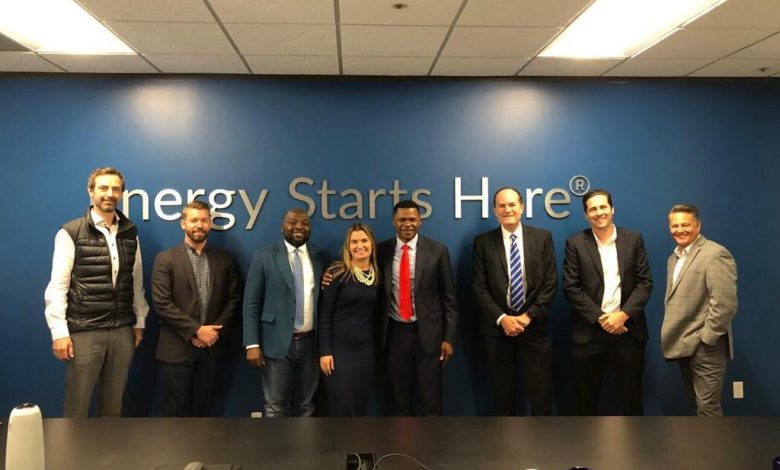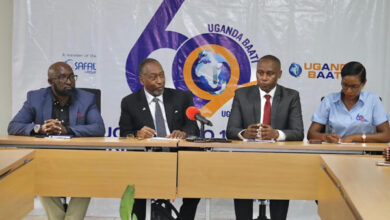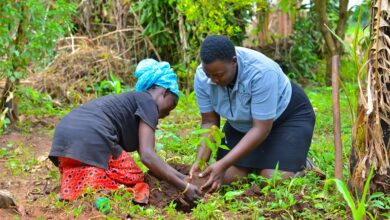Accurate and up-to-date seismic data is the cornerstone of a thriving oil and gas industry.
During a working visit to Houston, the African Energy Chamber met with a suite of oil, gas and seismic companies, with discussions centered on the critical need to advance collaboration and partnerships across Africa's oil and gas industry.

In Africa, geoscience companies take on a pivotal role, driving the success and efficiency of oil and gas projects by equipping countries and corporations with the precise tools needed to locate hydrocarbon deposits.
Without the vital contributions of geoscience firms, Africa would be unable to fully unleash the vast potential of its oil and gas resources.
The African Energy Chamber’s (AEC) working visit to Houston – currently underway – led by Executive Chairman NJ Ayuk, is promoting this very role, engaging with a suite of oil, gas and geoscience companies on the impact they have in Africa’s energy sector.
Underpinning the visit is the belief that partnerships between geoscience companies and African governments are quintessential for the success of the burgeoning industry, and that opportunities for geoscience companies in Africa are just unfolding.
During the visit, the AEC will meet with EnerGeo Alliance, a global trade association for the geoscience industry operating under the motto that, ‘Energy Starts Here.’
EnerGeo Alliance has long-been an important partner for Africa’s oil and gas sector, demonstrating time and time again a commitment to the continent’s hydrocarbon future.
The meeting will unpack how geoscience companies, with the support of EnerGeo Alliance, can contribute to the success of Africa’s oil and gas sector.
In addition, the meeting will focus on seismic development, and how African governments can support the activities of geoscience companies in untapped acreage.
Holding up to 125 billion barrels of proven crude oil reserves and 620 trillion cubic feet (tcf) of natural gas, Africa is just beginning to understand the full scope of its oil and gas resources. Countries such as Nigeria, for example, with 200 tcf of proven gas resources, likely hold as much as 600 tcf.
At the same time, countries such as Ivory Coast, the Democratic Republic of the Congo, Zimbabwe, Kenya and many more are yet to reveal their oil and gas reserves. Geoscience companies are the key for advancing exploration efforts, providing comprehensive understanding of Africa’s onshore and offshore hydrocarbon plays, and partnerships are what will underpin the very success of African oil and gas.
Despite the central role geoscience companies have and continue to play in Africa, companies continue to face challenges, with environmental groups blocking both onshore and offshore operations.
In South Africa, for example, energy companies continue to experience disruptions, with lobbyist organizations preventing the exploration of the Orange Basin – an area in which sizeable finds have been made on the Namibian side.
At the same time, South Africa is in the midst of an energy crisis, and domestic oil and gas would prove a lifeline to the economy.
As such, the geoscience community needs to be given the full support of Government, or untapped oil and gas resources will remain in the ground.
The same can be said continent-wide, and the AEC working visit will underscore the need for stronger collaboration. Topics of discussion will include issues faced by the geoscience community such as strong partnerships; streamlined license approvals; and clear regulation.
Additionally, with capacity building representing the very essence of energy and economic development, the meeting will highlight the imperative for training and skills development programs between government and National Oil Companies, as well as how scholarships, programs and mentorship can strengthen the geoscience industry.
“The geoscience community will have a catalyzing role to play in Africa for many years to come. Africa’s oil and gas potential is only starting to be understood. Through seismic surveys, we can not only understand what lies beneath the continent’s ground and waters, but we can fast-track decision making to monetize resources.
We see the seismic community continue to grow, with mergers such as between Norway’s TGS and Petroleum Geo-Services. This sends the right kind of message that the seismic community is committed to growth, and Africa should stand ready to welcome partners,” states Ayuk.
During this year’s edition of the African Energy Week (AEW) conference in Cape Town, the role geoscience companies play in growing the African oil and gas market was a prominent point of discussion.
Various panel discussions, technical presentations and forums drew attention to the need for further collaboration between geoscience players and African governments.
The event also featured the inaugural African Farmout Forum, a platform created for striking deals through in-depth understanding of Africa’s upstream plays. However, there is still a lot mo.re to be done, and both AEW and the AEC stand ready to support the growth and contribution of the global geoscience community





